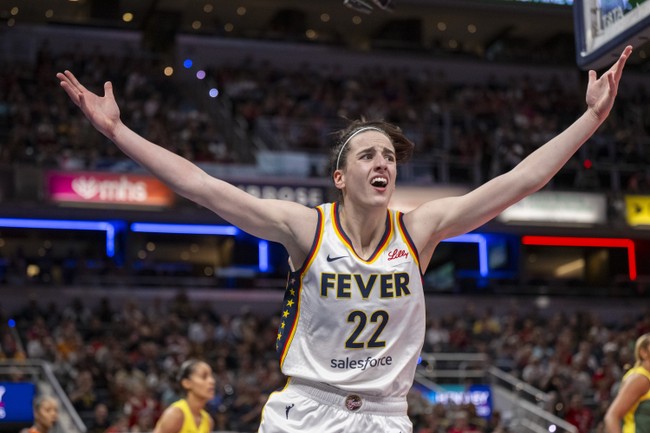WNBA Players Are Economically Illiterate

The WNBA All-Star Game in Indianapolis became a platform for protest as players took the court for warm-ups in black shirts reading, “Pay Us What You Owe Us.” A key focus of the All-Star weekend was a tense collective bargaining meeting between players and the league, with the current contract set to expire after the 2025 season. But these players have no business complaining and should feel lucky to be getting paid what they’re getting already.
Let’s be honest, the sight of WNBA All-Stars strutting around in "Pay Us What You Owe Us" shirts during Saturday night's festivities was nothing short of breathtaking in its sheer economic ignorance. Here we have a league that has hemorrhaged money for nearly three decades, propped up entirely by NBA subsidies, and these players have the audacity to demand what they're "owed" as if basic market principles don't apply to them.
WNBA players, currently in the middle of CBA negotiations, wore "pay us what you owe us" t-shirts for warm ups at the All-Star game.
There is no group of more delusional people on planet Earth, than WNBA players 🤦♂️🤦♂️ pic.twitter.com/MTyFual3wN
— Aaron Torres (@Aaron_Torres) July 20, 2025
The WNBA operates at a staggering loss, losing $40 million this season alone, while the average player salary sits at $147,000. Even basketball phenom Caitlin Clark, the one person actually driving meaningful viewership and revenue, earns just $78,000 from the league itself. She arguably deserves more compared to other players making double what she does, but that doesn’t change the basic economic reality of why they don’t have multi-million dollar contracts like NBA players do.
The players' complete disconnect from economic reality reached peak absurdity when more than 40 of them showed up to Thursday's collective bargaining meeting in Indianapolis, demanding transformational change in revenue sharing and salaries. WNBA Players Association vice president Breanna Stewart complained that the league's proposal doesn't allow them to "talk about the same thing" regarding percentages and revenue sharing. Here's a reality check: when your league loses tens of millions annually, there's no positive revenue to share.
Any other business operating under such circumstances would have shuttered decades ago, yet these players act as if they're being shortchanged due to sexism and corporate conspiracy.
The timing of this stunt couldn't be more tone-deaf. The All-Star Game should celebrate the sport's best talent and growing fanbase, largely driven by Clark's meteoric rise and mainstream appeal. Instead, we got a lecture on economic entitlement from players who seem genuinely confused about how markets work.
ICYMI: Parents, Watch Out: Here’s What the Obamas Want for Your Sons
WNBA Players Association president Nneka Ogwumike called the unprecedented player turnout at the meeting "historical" and suggested they "mean business" in their demands. The irony is palpable. The only business here is a failing enterprise kept alive through NBA charity, and these players are threatening work stoppages if their demands aren't met by October.
This economic cluelessness goes far beyond salary demands. WNBA players claim the league is thriving—citing growth in media rights and ticket sales—yet still call the current pay model “unsustainable.” Yes, Caitlin Clark has boosted viewership, but the league continues hemorrhaging money. Attention doesn’t equal profit, and player salaries already exceed market value.
The WNBA doesn’t function like a real business because it isn’t one. It survives purely because the NBA keeps it on life support, more out of woke obligation than any sense of profit. If these players truly believe they’re being shortchanged, nothing’s stopping them from testing the open market. But let’s be honest—those “Pay Us What You Owe Us” shirts would disappear real quick once they realize what they’re actually worth without the NBA footing the bill.
Worse, the WNBA keeps inventing new ways to be insufferable and drive viewers away. Between performative activism, petty infighting, and open hostility toward its biggest star, the league seems more focused on pushing narratives than building a product people actually want to watch. Rather than ride the wave of Clark’s popularity, they’ve doubled down on resentment and grievance—alienating potential fans and squandering what little momentum they had.